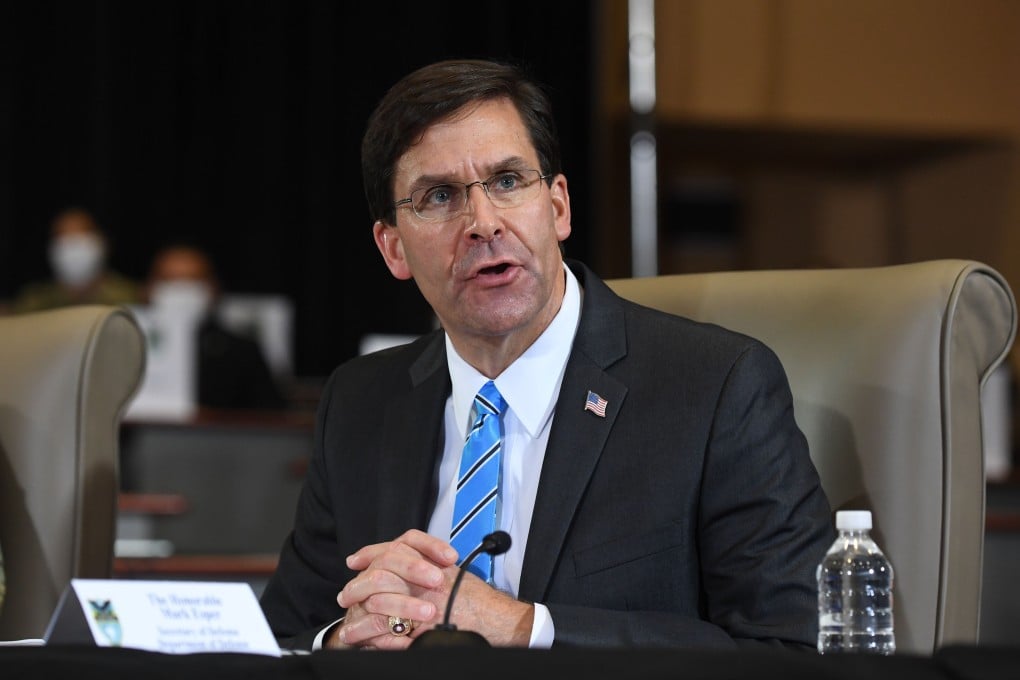US defence secretary Mark Esper plans to visit China this year, amid increased tensions
- Esper said he hopes to enhance cooperation and establish systems for crisis communications, as China intensified its ‘bad behaviour’ in recent months
- An analyst said recent US moves opposing Beijing’s claims in the South China Sea were designed to sow discord between China and its Asian neighbours

“Before the year is out, I hope to visit the PRC for the first time as secretary in order to enhance cooperation on areas of common interest, establish the systems necessary for crisis communications and reinforce our intentions to openly compete in the international system in which we all belong,” Esper said, using an acronym for the People’s Republic of China.
Washington is concentrating its energy and resources on driving a wedge between China and regional countries. That is a strategic error.
The United States has long opposed China’s expansive territorial claims on the South China Sea and sent warships regularly through the strategic waterway, but recent comments reflect a harsher tone.
“We want to deter against coercive behaviour,” Esper told a security seminar.
He said Beijing had intensified its “bad behaviour” in the past six months. China has built bases atop atolls in the region but says its intentions are peaceful.
Esper said China “has no right to turn international waters into a zone of exclusion for its own maritime empire”. He added: “We are not in search of conflict. We are committed to a constructive and results-oriented relationship with China and, within our defence relationship, to open lines of communication and risk reduction.”